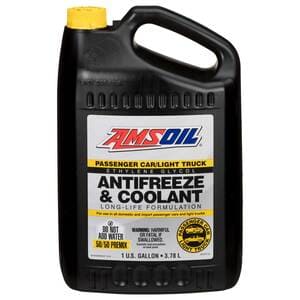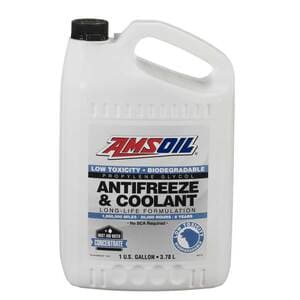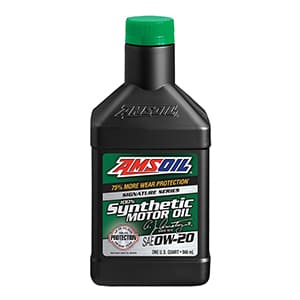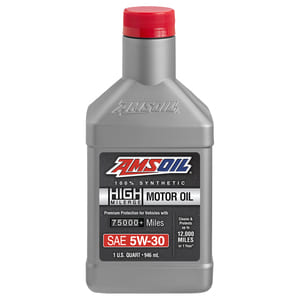Proper maintenance of a car coolant system is essential for the longevity and performance of any vehicle. This comprehensive guide explores the importance, functionality, and maintenance of coolant systems and water pumps in modern cars. By understanding these components, car enthusiasts can ensure their vehicles run efficiently and avoid catastrophic engine damage.
Importance of Coolant Systems and Water Pumps
Purpose of Coolant Systems

A car coolant system plays a critical role in maintaining optimal engine temperature. When a vehicle’s engine runs, it generates heat due to the combustion of fuel in the cylinders. This heat must be managed to prevent the engine from overheating, which can result in significant mechanical failures and costly repairs. The primary purpose of the coolant system is to transfer this heat away from the engine.
Function of Water Pumps
Water pumps are integral components of the coolant system. Their main function is to circulate the coolant fluid throughout the engine and radiator. By moving the coolant fluid through these pathways, the water pump ensures that heat is efficiently transferred from the engine block to the radiator, where it is dissipated into the outside air.
Temperature Dynamics in Engines
Understanding the temperature dynamics within an engine highlights the necessity of an effective coolant system. When a spark ignites the fuel-air mixture in the cylinder, it creates an initial temperature of about 400°F. This energy surge can raise temperatures to approximately 1500°F. These extreme temperatures necessitate high-efficiency components like coolant systems and water pumps to maintain safe operational levels.
Anatomy of a Water Pump
Impeller
At the heart of a water pump lies the impeller. This component features fins designed to propel the coolant fluid through the system. However, without these fins, which can erode over time due to lack of maintenance, the water pump fails to circulate the fluid effectively, leading to engine overheating.
Bearings
The water pump also contains bearings that facilitate the rotational motion of the impeller. These bearings need to be in good condition to ensure the smooth operation of the pump. Faulty bearings can lead to water pump failure, causing insufficient coolant circulation.
Front Components
In addition to the impeller and bearings, the front components of the water pump play a role in its functionality. These parts, including the water pump pulley, help drive the pump using the engine’s serpentine belt. Proper maintenance of these front components is vital for the overall performance of the water pump.
Consequences of Water Pump Failure
No Water Circulation

A malfunctioning water pump means that coolant fluid will not circulate through the engine and radiator. This lack of circulation prevents the coolant from absorbing and transferring heat away from the engine, leading to potential overheating.
Engine Damage
The absence of proper coolant flow can result in catastrophic engine damage. Overheating may cause the engine block to warp, head gaskets to fail, and other vital components to deteriorate, resulting in costly repairs or even engine replacement.
Coolant Systems in Modern Vehicles
Hybrid Vehicles
Hybrid vehicles incorporate coolant systems to manage the temperature of their internal combustion engines and electric components. It’s crucial to ensure that these systems are well-maintained to avoid both mechanical and electrical failures.
Electric Vehicles
Electric vehicles also rely on coolant systems, albeit primarily for their electronic components. The inverter coolant systems in electric cars help maintain optimal temperatures for electronic control units and batteries, which are critical for vehicle performance.
Inverter Coolant Systems
These systems are specially designed to keep electronics cool, highlighting the broader importance of coolant systems beyond just engine temperature management. Properly functioning inverter coolant systems ensure the reliability and longevity of the vehicle’s electronic components.

Coolant Maintenance
Importance of Using Specific Coolants
Maintaining a car coolant system involves using the correct type of coolant recommended by the vehicle manufacturer. Different vehicles require specific coolant formulations to provide adequate protection against corrosion and overheating.
Corrosion Protection Packages
Modern coolants come with corrosion protection packages tailored to safeguard all the engine’s components. This feature is particularly vital due to the increased use of aluminum in engine construction, as aluminum parts are more susceptible to corrosion without the right protection.
Aluminum Components in Modern Vehicles
The use of aluminum in contemporary vehicles has grown due to its lightweight and strength. However, aluminum requires more diligent care to prevent corrosion, making the choice of coolant and its timely replacement even more critical.
Choosing the Right Coolant
Consulting Owner’s Manual

One of the best ways to determine the appropriate coolant for a vehicle is by consulting the owner’s manual. The manual provides specific guidelines on the type and quantity of coolant needed, ensuring proper maintenance and performance.
Checking Manufacturer’s Website
In addition to the owner’s manual, car owners can visit the manufacturer’s website for information on compatible coolant products. This resource can also offer updates on any new coolant formulations that may be better suited for the vehicle.
Signs of Coolant System Neglect
Rotted Water Pump Components
Neglected coolant systems can lead to the deterioration of water pump components. As shown in various studies and analyses, the fins on the impeller can rot away due to prolonged exposure to degraded coolant, leading to a loss of circulation efficiency.
Never-Serviced Coolant
Vehicles that have never had their coolant serviced often show signs of severe internal wear. The coolant fluid can become contaminated and lose its effectiveness, increasing the risk of overheating and engine damage.
Oil Change Importance

Frequency of Oil Changes
Regular oil changes are crucial for maintaining a vehicle’s engine health. The frequency of these changes can vary depending on the type of oil used and the vehicle’s specific requirements. Most manufacturers provide guidelines on when to change the oil, often based on mileage or time intervals.
AMSOIL’s Extended Drain Intervals
AMSOIL offers extended drain intervals, allowing for fewer oil changes while maintaining engine protection. With options such as up to 25,000 miles between oil changes, AMSOIL’s products cater to those seeking convenience without compromising on engine care.
Using Maintenance Indicators
Modern vehicles are equipped with maintenance indicators that alert drivers when it’s time for an oil change. Adhering to these indicators ensures that the engine oil remains effective in lubricating and protecting engine components.
Benefits of Regular Oil Changes
Reducing Deposits
Regular oil changes help minimize the buildup of deposits within the engine. These deposits can impair the engine’s performance and longevity, making it essential to keep the oil clean and fresh.
Maintaining Cleanliness
Clean engine oil ensures that all moving parts are well-lubricated and functioning optimally. This cleanliness reduces wear and tear on engine components, contributing to the overall efficiency and lifespan of the engine.
Ensuring Proper Lubrication
Proper lubrication is vital for reducing friction between engine parts. Regular oil changes ensure that the oil remains at its peak performance level, providing the necessary lubrication to prevent mechanical failures.
Engine Protection Through Oil Changes
Prevention of Sludge Buildup
Regular oil changes prevent the formation of sludge, a thick, sticky substance that can clog engine parts and hinder performance. By keeping the oil clean, car owners can avoid issues related to sludge buildup.
Examples of Neglected Engines
Instances of engines with extended oil change intervals, such as 50,000 miles without an oil change, illustrate the consequences of neglect. These engines often exhibit severe sludge buildup and require significant repairs to restore functionality.
Modern Engine Technologies
Variable Valve Timing
Variable valve timing (VVT) is an advanced engine technology that enhances performance and efficiency. VVT systems rely on clean, high-quality oil to operate correctly, making regular oil changes essential for modern engines.
Other Advanced Features
Alongside VVT, modern engines incorporate various advanced features, all of which depend on clean and effective oil. These features include turbochargers, direct injection systems, and hybrid powertrains, each requiring diligent maintenance to function correctly.
Oil Requirements for Modern Engines
Movement Capabilities
Modern engines demand oil that can maintain its viscosity and flow characteristics under various operating conditions. This capability ensures that the oil can reach and lubricate all engine parts effectively.
Lubrication Properties
The lubrication properties of engine oil are critical for reducing friction and wear. Modern oils are formulated to provide superior lubrication, enhancing engine performance and longevity.
Protection Features
High-quality engine oils offer protective features that shield engine components from wear, corrosion, and overheating. These features are particularly important in modern engines with advanced technologies.

Selecting the Right Oil
Using Manufacturer’s Website
Just as with coolant selection, using the manufacturer’s website can help identify the correct oil for a vehicle. This resource ensures that car owners choose oils that meet the specific requirements of their engines.
Vehicle-Specific Product Recommendations
Websites like AMSOIL’s provide vehicle-specific product recommendations, making it easy for car enthusiasts to select the right oils and coolants for their vehicles. These recommendations take into account various factors, including engine type, driving conditions, and manufacturer specifications.
Visual Aid: Water Pump Comparison
Healthy Water Pump Fins
A healthy water pump has intact fins on its impeller, ensuring efficient coolant circulation. These fins are crucial for propelling the coolant fluid through the engine and radiator.
Damaged/Rotted Water Pump Fins
In contrast, water pumps with rotted or damaged fins show signs of coolant system neglect. Without these fins, the water pump cannot circulate coolant effectively, leading to overheating and potential engine damage.

Coolant Flow Diagram
Path from Engine Block to Radiator
A coolant flow diagram illustrates the pathway of coolant fluid from the engine block to the radiator. This flow is essential for transferring heat away from the engine and maintaining optimal operating temperatures.
Heat Transfer Process
The heat transfer process involves the coolant absorbing heat from the engine block and carrying it to the radiator. At the radiator, the heat is dissipated into the outside air, allowing the coolant to return to the engine at a lower temperature.
Conclusion
Maintaining a car coolant system is vital for the longevity and performance of any vehicle. From understanding the anatomy of water pumps to recognizing the signs of coolant system neglect, car enthusiasts can take proactive steps to ensure their vehicles run efficiently. Regular oil changes, using the correct coolant, and adhering to maintenance schedules are key practices in safeguarding engine health. By staying informed and diligent, car owners can enjoy long-lasting, reliable performance from their vehicles.

